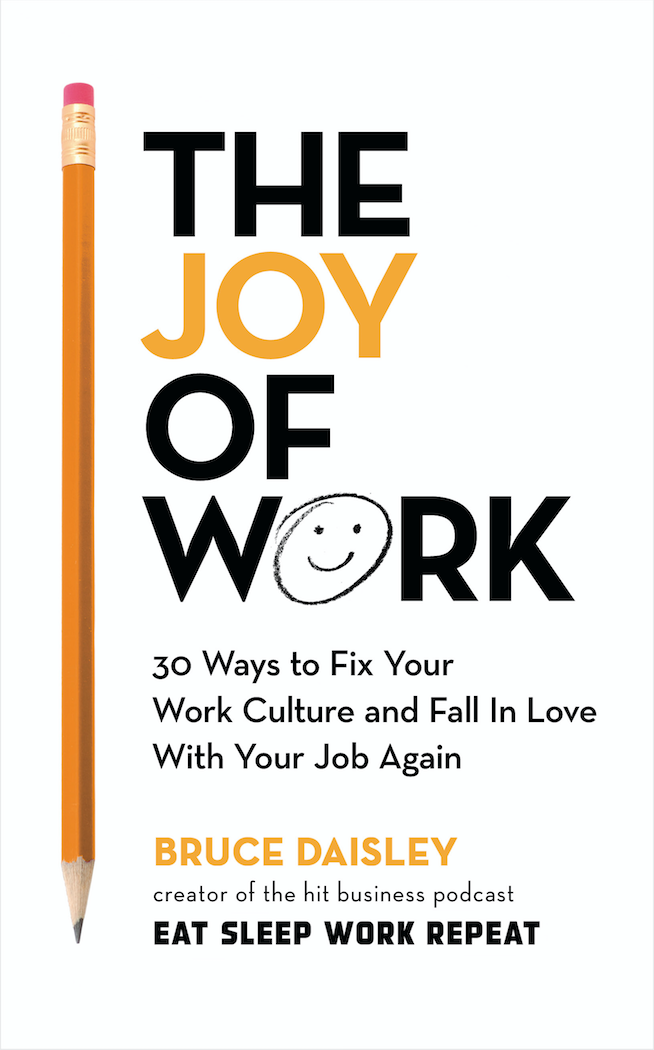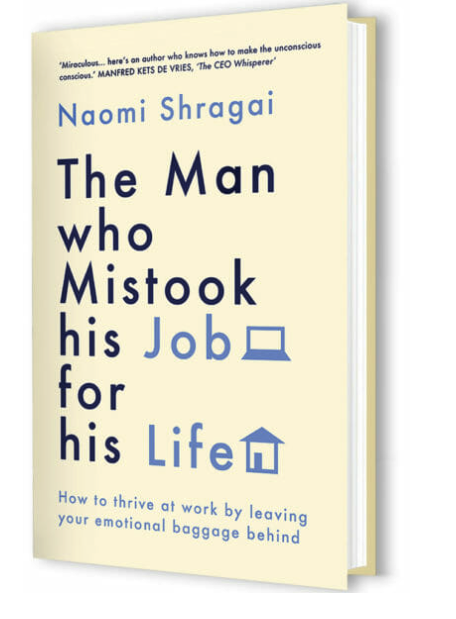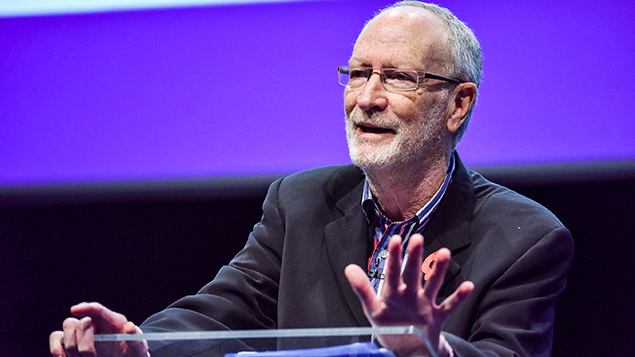Achieving results Obliquely
In 2010 John Kay wrote an article for the FT called Obliquity. It proved so popular that it became a best selling book. Obliquity is the concept that to achieve what we want to do we should aim for other things – we achieve our goals obliquely.
Transcript
Bruce Daisley (00:07.138)
This is Eat Sleep Work Repeat, a weekly series of podcasts about happiness and work culture.
Hello? Are you here for the podcast? The podcast about work culture and happiness? This is it! Hello? Here’s some admin. You can find us on Twitter by searching Eat Sleep Work Repeat. This week I tweeted about Netflix updating their culture document and about all the challenges, the ongoing saga of Uber, updating a couple of different episodes there. I’ve also got a personal Twitter actually, if you’d like to read what my favourite album of the year is on me droning on about social justice.
I think this could be your go-to account. People who are connected with me on LinkedIn got a slightly spammy email about the podcast this week. My LinkedIn is not what you’d call best practice. The political conversation I initiated on there a couple of weeks ago got so out of hand, I ended up blocking a few people. Who knew that LinkedIn even had a block function? It was idiotic behavior. And I don’t know. Do you ever wonder if you’re the idiot? My colleague and friend, Dara, said, if you haven’t worked out who the idiot is, after the first 10 minutes of a meeting, it means it’s probably you. He didn’t use the word idiot to be fair, he’s got an obscenely toxic mouth. He even gave one of his kids a swear word for a name. He’s banned from three local playgrounds for calling her as a result. Anyway, maybe my conduct on LinkedIn and elsewhere means I am an idiot and like the sixth sense, I’m the only one who hasn’t realized yet. Let’s get down to business. Today’s episode is simple and brilliant. It’s about the concept of obliquity.
And that’s the idea that you can achieve complex goals indirectly. Specifically, it came up in two discussions in earlier episodes with Richard Reeves and with Paul Dolan. And it’s the idea that if you want to be happier or make people happier at work, you don’t achieve that by going and trying to set out to make them happier. So let’s speak to the person who popularized that and turned it into a business concept. That’s John Kay. He really came up with it in his 2010…
article and book called Obliquity. John is one of Britain’s leading economists. He’s a professor at LSE, a fellow at Oxford University. You don’t need any more prattling from me, but you should listen to John. Think about if you are trying to make people happy at work, how would you set about doing it obliquely? Here’s John.
Bruce Daisley (02:36.617)
Explain to me the concept of obliquity.
John Kay
The concept of obliquity is that complex goals are often best pursued indirectly.
The example of that that people find easiest is happiness. That actually you don’t become happy by pursuing happiness, whatever the American Constitution may say. People are happy because they develop a satisfying career, good relationships with other people, comfortable family life and so on. And that’s very different from repeating pleasurable experiences, which we call hedonism and which is really rather different. People behave like that, don’t end up as particularly happy. So happiness is not actually the sum of happy moments.
Bruce
Yeah, and so you illustrate it through lots of examples. One of the examples, which I think from a business perspective is fascinating, is taking the example of ICI. So the example of ICI for a long time was a proud British successful business.
John Kay (03:33.198)
started with a mission statement of ICI in late 1980s when they said our aim is to the responsible application of chemistry and related sciences in business and then went on to say through achievement of our aim that is the application of science to business. We will… make money for our investors, provide jobs for our workers and serve the communities in which we operate. They changed that in the early 90s to say our objective is to create shareholder value by focusing on business.
which we have competitive advantage, cost leadership and a prominent market position. Now what’s interesting actually is to look at the history of the company in these two phases. ICI was formed in 1926, started as essentially a merger of a die stuffs and explosives company. Focus of chemistry and business moved on to petrochemicals, fertilizers and so on. They made that shift in 1930s. In 1940s they saw that the future of chemistry in business was in pharmaceuticals. So they set up a pharmaceutical division. They lost money in that division for 20 years, which would be difficult for any company to do now. But in the 1960s, they discovered Blockbuster Drug, which was beta blockers, beneficial for people with high blood pressure, sold millions around the world. The pharmaceutical division became profitable and soon it was the main engine of profits and revenue growth in the company. The ICI that started in mid-90s, well, it’s quite interesting to see what happened. Share price peaked in 1997 and it went steadily down by 2003 it had lost 80 % of its value. What they tried to do was to sell off some of boring old businesses, the staples and petrochemicals and so on, and buy sexy new businesses for a time they wanted to be a smells company, they thought. And all this was reshuffling of portfolio was a disaster. Share price had collapsed, stabilized early 2000s, and in 2007 what was left of the company was taken over by Dutch company Exo Nobel. So that was what happened to one of Britain’s, what was Britain’s leading industrial company from the 20th century. specifically by aiming to increase shareholder value, had exactly the opposite.
Bruce
And so when it comes to the application of this for happiness, think you talk in your work about how John Stuart Mill was a sort of studier of this and his pursuit of happiness, ended up reaching the same conclusion you’ve said. They had exactly the opposite effect.
John Kay (06:11.598)
He did actually, and John Stuart Mill was a great advocate of utilitarianism, that the pursuit of happiness was in a sense the end of life. He wasn’t, if one’s honest, a very happy man during his life. And in his autobiography he said, came to see that happiness could only be achieved indirectly by pursuing other goals.
Bruce
So I’m thinking, I always think specifically about work culture and I think you know one thing that most people have got this notion that happy or motivated people will do better work and so consequently if we make people happy they’ll do better work and with the learning of obliquity, with the understanding of obliquity that seems It doesn’t make sense and obviously there’s a balance to be struck between making people happy and making them work.
John Kay
If you have a company which says our goal is to maximise shareholder value, then the question anyone who works in that company is going to ask is why do I want to work for a company like this? And the only answer you can give to that question is because we’re going to make you a lot of money. Maybe that’s not the answer some of these companies give. In terms of creating cooperative working relationships, people who want to look after customers and care about customers and so on, that’s, or people wanting to work for a business.
that they can feel proud of when they go down the pub or to a drinks party. That’s not the way to do it. It’s quite funny, though the worst examples of that are of course companies in the financial sector, which have said for some time our purpose is to create shareholder value. The extreme case was Bear Stearns, which famously had a sign on its trading floor saying we make nothing but money. But in the end, it turned out that Bear Stearns didn’t succeed in making that either. And they didn’t make it for Basically for a reason that these businesses like Bear Stearns or Lehman were actually destroyed by the greed of their own employees. Because if you have a purely instrumental organisation, that’s what will happen.
Bruce
So is that specifically because if you’ve got an organisation that exists solely, their objective is binary, to make money, then there’s no rules or there’s no culture that guides against that?
There but there’s no culture.
John Kay
Right. The only culture is making as much money as possible and that translates for most people into making as much money as possible for yourself. And the difference is between that and people working for an organisation that they feel is doing worthwhile, that people feel proud to work for. One thing that has struck me is I think most careers where people earn a lot of money, know, think of things like law and so on, people actually love the jobs they’re doing. People who are successful professionals footballers would pay football for very little money. In fact, look, historically, people like Stanley Matthews did. So it’s not money that is driving them to do it. On the other hand, people in the finance sector, I’ve had a lot of them say, you know, I hate my job, but I can’t afford to give it up. And quite a lot of people are anxious just to make enough money to be able to quit. A lot of people’s reactions, a bit the one we’re having in this podcast, say, kind of, I’d always known that, and you’ve put in to words what I always thought. Another version of that is, I’d always known that, hadn’t I? Which is perhaps less flattering. Then you get the people in business who go on parroting the mantra about shareholder value and I don’t quite know how one’s going to change that. The silliest version of that from people in business, I think, is people who say, of course, a business can’t pursue multiple objectives. I find that just ridiculous. Everyone pursues multiple objectives. How else could you get through life. I think that the peak of the shareholder value boom is over. It kind of ended in 2008 with the global financial crisis. And you may remember Jack Welch, General Electric, the US company, who is often described as the architect of shareholder value or the shareholder value theory, which is not actually true because he didn’t talk about shareholder value until well into the 1990s when it had become very fashionable. when he famously said in 2009, shareholder value is the dumbest idea.
Bruce
I wonder if all these things are cyclical because right now there seems to be lot of companies that trying to profess a sense of purpose and meaning or mission which in itself often seems to have got hollow. When it comes to happiness then, do you think the focus on net national happiness measures, do you think those things are helpful?
I wonder, it does raise the question though, what you should aim for. Because look, know, so if, whether it’s maximising shareholder value or whether it’s maximising the motivation and the contentment of people at work, is it always evident what you should be aiming for?
So your objective is to do whatever you’re doing with a great quality or a quality that befits the level of the marketing you do.
Bruce Daisley (16:33.058)
Thank you to John. A brilliant concept there. think one very easy to use and adapt into your own discussions at work. Thank you for listening. I’ve got some really good episodes coming up. So appreciate that. And thanks for all the feedback. So always good to hear from you. See you next week.







